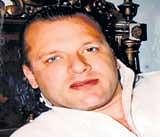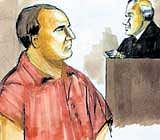

"Yes access (to Headley) has been given. This is an ongoing process and I don't have any detailed information that will be helpful except to say that it is in the hands of right professionals from both countries," Jones told reporters at his White House office. "We have fulfilled our commitment," he said. However, Jones did not have detailed information about how and when a team of visiting Indian investigators was given access to Headley, who is being held in Chicago.
"We are very happy that in this world of terrorist activities that our two countries can work together to make sure that we exchange information rapidly, we exchange intelligence that we have, when we capture people that are mutual interest we try to arrange for those people to be interviewed by all interested sides in the interest of solving the problems of these networks," he said.
Asked if this access to Headley is going to be one-time affair or whether Indian investigating agencies would be given access multiple times, Jones said: "I don't know but the spirit of cooperation and respect for each other's position is alive and well and we have taken the first step, we just have to wait and see whether there is any other request beyond this one."
When asked what does this case symbolise, the US National Security Adviser said: "If I were a terrorist, it would tell me that looks like India and the United states are working very closely together and that is going to make my job a lot more difficult to be successful and that's a good thing." Jones said: "What we need is a network of countries that can operate in the same way with speed, with precision, with openness because there is not one country that is going to defeat terrorism; it is going to be many countries working together."
His remarks follow visiting External Affairs Minister S M Krishna's statement that investigations of this nature are very sensitive. The minister also did not say clearly if the National Investigation Agency (NIA) officers had interrogated Headley or not. A team of NIA officers had arrived in Chicago early this week with the objective of interrogating Headley. "Investigations of this kind are of a very delicate and sensitive nature. We cannot go on spelling out day to day updates. Right now the time is not appropriate," Krishna said last evening.
"There is overwhelming evidence that Headley is a conspirator in 26/11. India will use all the force at its command and will put forward the plea that we should have access to Headley," he said, but was quick to assert that New Delhi had been assured it would get access to Headley. "We have been assured that we will have access to Headley. How it is going to be accommodated and how it is being arranged within the legal framework is something which is being worked out within the legal framework of the United States," Krishna said.
Replying to a question, Jones said the issue of Headley figured during his meeting with Krishna here. However, it was not clear how much information Headley would be giving to Indian investigators, particularly since he would be flanked by his lawyer and an FBI officer during the questioning.
The NIA team headed by Loknath Behera, which included two Superintendents of Police and a special public prosecutor, had been camping in Chicago to question Headley for the first time since the LeT operative was arrested by FBI last year. An FBI Chicago spokesperson earlier told reporters that the federal agency would not provide any information on Headley's interrogation.
Headley's lawyer John Theis too said he "cannot share any information about the meeting". Headley, who had pleaded guilty to plotting the 26/11 attacks, struck a deal with US authorities in a plea bargain that saved him from the death penalty and extradition to India. The plea agreement had, however, said Headley would cooperate with foreign authorities but can be interviewed by them only on the US soil.